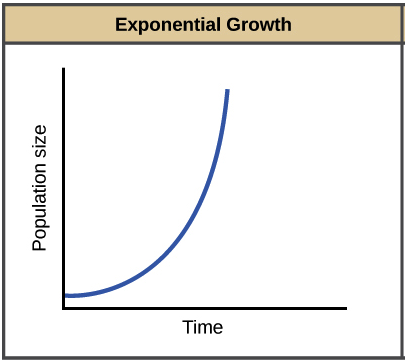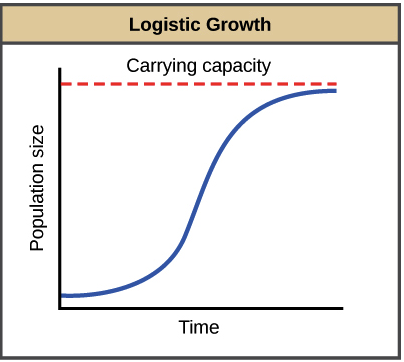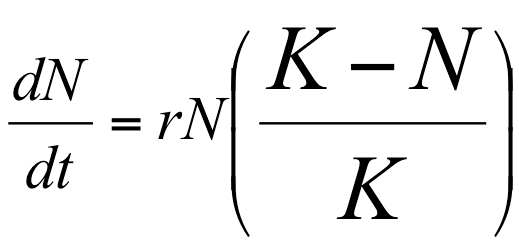AP Biology Unit 8 Review-Ecology
[[@@Population Ecology@@[[
%%Population Growth%%
- Factors that affect population growth are: Age of reproductive maturity, number of offspring produced, frequency of reproduction, and survivorship of offspring to reproductive maturity
- Equation: dN = change in pop size, dt = change in time, B = Birth rate, D = death rate
^^dN/dt = B - D^^
%%Exponential Growth%%
Sharp increase in population growth, occurs under ideal conditions w/ abundant resources
Number of organisms added to each generation increases as the population grows
More individuals are reproducing but amount of time it takes to produce offspring stays the same
J CURVE!!

Equation: dN = change in pop size, dt = change in time, N = population size, r = maximum per capital growth rate of population
^^dN/dt = rN^^
%%Logistical Growth%%
Growth starts slowly, then exponential growth, then stable maximum growth
Carrying capacity: Max # of individuals envt can support

Equation: dN = change in pop size, dt= change in time, N = pop size, K = carrying capacity, r = max per capital growth rate of pop
^^dN/dt = rN((K-N)/K)^^

%%Factors that limit population growth%%
- ^^Density-independent^^ factors include natural events such as wildfires, hurricanes, earthquakes, etc.
- ^^Density-dependent^^ factors depend on population density and include things like competition, disease, and predation